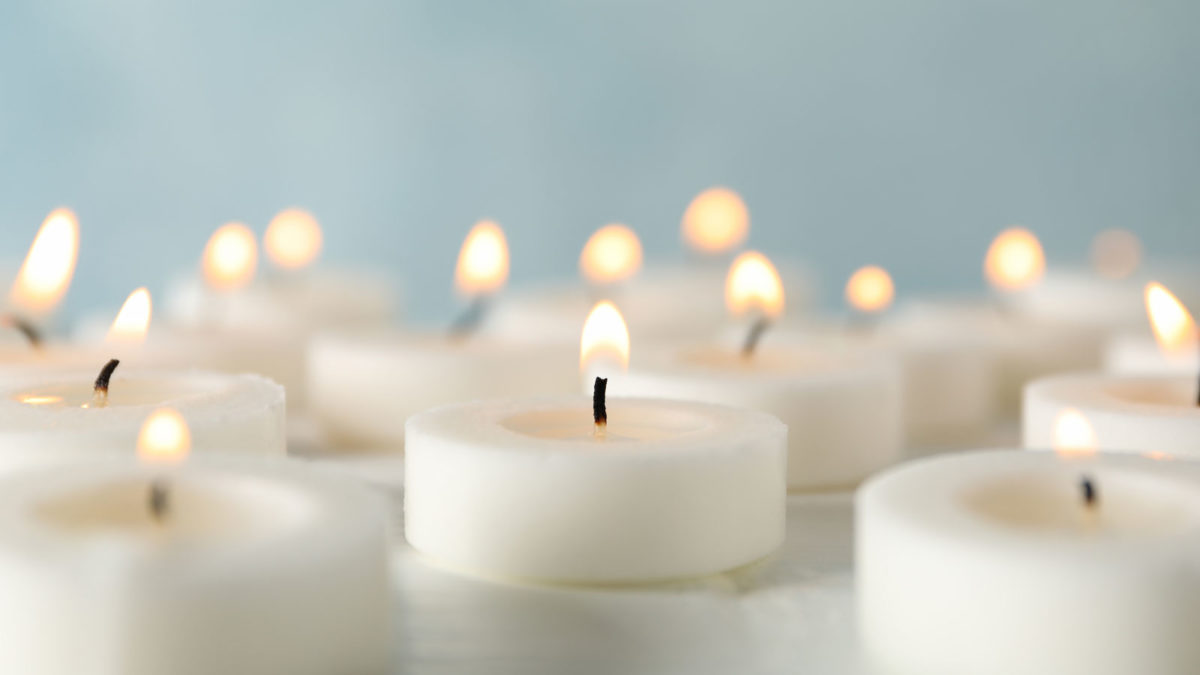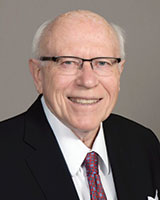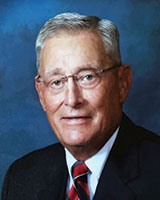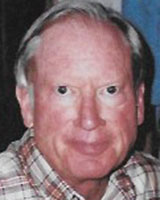
Larry Bohning, Robert Ruyle, and Earl Wylder
November 2024
Download This Article (.pdf)
Larry L. Bohning
August 20, 1942–July 22, 2024
 Larry L. Bohning of Denver passed away on July 22, 2024, from Parkinson’s Disease. Larry was a loyal, generous, kind, and affable friend with many interests. A letter to the Rocky Mountain News dated July 15, 1980, well describes Larry’s fine reputation as a Denver County Court judge: “I had ample opportunity to observe a most remarkable sight—the most understanding, polite, interested and fair judge, Larry Bohning [, who] treated all cases with intelligence, fairness, and in some cases, with a ‘twinkle’ in his eyes. Such a remarkable man should not go unnoticed. May we have many more like him.”
Larry L. Bohning of Denver passed away on July 22, 2024, from Parkinson’s Disease. Larry was a loyal, generous, kind, and affable friend with many interests. A letter to the Rocky Mountain News dated July 15, 1980, well describes Larry’s fine reputation as a Denver County Court judge: “I had ample opportunity to observe a most remarkable sight—the most understanding, polite, interested and fair judge, Larry Bohning [, who] treated all cases with intelligence, fairness, and in some cases, with a ‘twinkle’ in his eyes. Such a remarkable man should not go unnoticed. May we have many more like him.”
Larry was born on August 20, 1942, in Harrold, South Dakota, a railroad town, where his father owned the general store. He helped in the store throughout his youth and became a certified egg tester and cream tester. After graduating from Dakota Wesleyan University in 1965, he received his law degree from the University of South Dakota in 1968. In these early years, he visited New York City and elsewhere. Proud of his South Dakota origins, he relished social gatherings of fellow South Dakota natives who had emigrated to the Denver area. After law school, Larry worked in the South Dakota Attorney General’s Office and South Dakota General Assembly’s Legislative Drafting Office. In 1970, he moved to Denver, where he worked in the Legislative Drafting Service for the Colorado General Assembly and later as an assistant city attorney for the City and County of Denver.
In 1980, he was appointed a Denver County Court judge, a position he held until his retirement in 2015. During this time, Larry served a term as chief judge and was consistently reelected by large margins. He was the first judge to preside over the Court to Community program, which was established to help the homeless and mentally ill receive assistance and treatment rather than jail time. The program became a national model and earned Larry recognition from the Mental Health Association of Denver.
In 1992, he met Marie Fitzpatrick, a neighbor, in the elevator of their high-rise condo building. When Larry introduced Marie to his 95-year-old aunt, he told her they met in the elevator, and she asked whether the elevator was going up or down: it was definitely going up. Marie and Larry remained together ever since that elevator ride and were married in October 2003.
Larry was a loyal friend who always remembered the birthdays of friends and family with hilariously appropriate cards. He was known for his affability, kindness, loyalty, and exuberance. He was a long-time member of the Rotary Club of Denver, where he served on the program committee and enjoyed finding interesting, qualified speakers on a wide variety of subjects. He also served as Rotary Club secretary for several terms and enjoyed telling jokes at its regular luncheon meetings.
As a local judge, he performed weddings and sometimes helpfully offered the affianced couples an extensive variety of ceremonial options. Perhaps his most remarkable wedding occurred on Halloween of 1997, when he married a man dressed as the Big Bad Wolf to a woman dressed as Little Red Riding Hood. The event was covered in a story and photograph in the Rocky Mountain News.
Always interested in history, Larry found many venues for reading and research. For many years, he was an active member of the First Unitarian Universalist Church of Denver. He developed and delivered a set of lectures on notable Unitarian Universalists from the 18th to early 20th centuries and served on the church archives committee. Larry participated enthusiastically in the Colorado History Group, which among other activities, performed mock trials of local, historical characters, such as Alferd Packer. These productions usually drew large audiences and featured prominent, amateur actors, such as Tom “Dr. Colorado” Noel and legendary legislator and Denver’s city auditor Dennis Gallagher. He was also a member of the Denver Posse of Westerners, and he was sometimes a late Friday afternoon visitor at the Western History Department in the downtown Denver Public Library.
As his 50th birthday approached, Larry decided to celebrate it by climbing Colorado’s highest peak—Mt. Elbert. Although he had not previously been an active exerciser, he practiced by climbing the stairs in his high-rise condo, and with the help of friends, he made it to the top. In the following years, those friends and Larry and Marie scaled several other Colorado Fourteeners and undertook a series of multiday hikes in the United Kingdom and parts of Europe. They also hiked in New Zealand and South Dakota. Larry documented all of his hikes and trips with voluminous photographs and sometimes audio recordings. A mountain runner he met on a hike in the Lake District of England called him “Pops,” and thus his hiking buddies frequently referred to him as “Popsarazzi.”
Larry pursued a wide range of intellectual interests, including architecture, fine arts, history, theatre, and natural sciences. He not only attended theatrical productions but also took acting lessons at the Denver Center for the Performing Arts. He enjoyed chatting about the arrival of humans in the Americas, Dolly the cloned Scottish sheep, and the career of gang-busting Denver District Attorney Philip Van Cise, and he wrote several historical biographies for Colorado Lawyer. Until disabled by Parkinson’s, he was engaged with a book about Dwight D. Eisenhower’s connections to Colorado—and built a reference collection.
Larry is survived by his wife Marie, nephew Lee Bohning, and niece Lori Carr; a great niece and great nephew; and Geraldine Bohning, widow of his brother Don Bohning, a well-known journalist with the Miami Herald.
Donations in his name may be made to the Parkinson’s Association of the Rockies or the AdventHealth Hospice Care Porter.
Robert Arthur Ruyle
April 17, 1935–July 27, 2024
 Robert Arthur Ruyle, known to all as Bob, died peacefully at home on July 27, 2024, surrounded by his family and friends. He was 89 years young. Bob was born in Greeley and a proud resident of what he called “the center of the universe.” He was a 1953 graduate of Greeley Central High, where he played on state championship basketball and tennis teams. He attended the University of Northern Colorado and earned his law degree in 1959 from the University of Colorado in Boulder, where he became a lifelong Buff.
Robert Arthur Ruyle, known to all as Bob, died peacefully at home on July 27, 2024, surrounded by his family and friends. He was 89 years young. Bob was born in Greeley and a proud resident of what he called “the center of the universe.” He was a 1953 graduate of Greeley Central High, where he played on state championship basketball and tennis teams. He attended the University of Northern Colorado and earned his law degree in 1959 from the University of Colorado in Boulder, where he became a lifelong Buff.
Bob was active and generous with his community. He served as a member of the Greeley Water Board from 1975 until 2021 and, thereafter, as an emeritus member. Over the years he also served as a director and/or board member for numerous local organizations, including the Greeley Chamber of Commerce, Greeley Industrial Development Foundation, Northern Colorado Foundation, North Colorado Medical Center Foundation, Longs Peak Council of the Boy Scouts of America (which honored him as a distinguished citizen in 1997), Mountain Prairie Council of the Girl Scouts of America, University of Colorado Foundation, University of Colorado School of Law (Alumni Board), and University of Colorado Presidents Leadership Class. Bob helped found the Union Colony Bank of Greeley. He was a member of the Greeley Country Club, Colorado Arlberg Club, Beebe Draw Gun Club, and First Congregational Church.
Bob’s profession was law. He started his career in private practice with his father-in-law and early mentor David J. Miller. His career took a dramatic turn when he joined Hensel-Phelps Construction Company as the vice president and general counsel. At Hensel-Phelps, he became one of the leading lawyers in construction and water law. He was the first lawyer to serve on the executive committee of the National Associated General Contractors of America, where he was chair of the Corp of Engineers, Heavy and Industrial Division, and Water Resources committees. The University of Colorado recognized his achievements in the construction industry in 1991 by awarding him a Distinguished Achievement Award as an Executive in Industry. After his retirement from Hensel-Phelps in 1992, he returned to solo law practice, mainly helping his friends, relatives, and community. His Hensel-Phelps family remained dear to his heart.
Every day of his life, Bob was active. He fished, golfed, hunted, skied, biked, hiked, traveled, or just puttered around. Although law was his profession, fishing was his passion. He pursued that passion all over the world, including in Alaska, British Columbia, Mexico, the Bahamas, Patagonia, Russia, Bhutan, and New Zealand. Bob shared that passion with many lifelong friends and several generations of his family. He also loved skiing and was still on the slopes during the 2023–24 ski season.
In typical Bob fashion, he never stopped living each day, trying new things, and expanding his diverse circle of friends. His superpower was making significant human connections. He was strong-willed, occasionally stubborn, and gave freely of his opinions, often delivered unsolicited. But he was also a loving husband, father, and grandfather (not only to his own but also others), a fiercely loyal friend, a good and thoughtful neighbor, and a champion of the arts and artists. His sly sense of humor served him well and made for good stories. All of that made him fun to be around. To paraphrase nearly everyone, “when I grow up, I want to be like Bob.”
Bob is predeceased by his beloved wife, Lydia Miller Ruyle, and his parents, Dorothy and Marion Ruyle. He leaves behind three children, Dr. Stephen Ruyle (wife Dr. Stephanie Zacharer Ruyle), Dr. Margaret Rukstalis (husband Dr. Daniel Rukstalis), and Robin Struve (husband Keith Struve); six grandchildren, Bridger and Remington Ruyle, Mae and Leeden Rukstalis, Allee Struve, and Katie Struve Binswanger (husband Zach); his brother, Gary Ruyle; numerous nieces, nephews, and cousins; and his longtime companion, Linda Cox.
Contributions in his name may be made to the Weld Community Foundation, University of Colorado-Ruyle Family President’s Leadership Class Scholarship Fund, or University of Northern Colorado Jazz Studies Program.
Earl Sherwood Wylder
July 7, 1931–June 10, 2024
 Earl Sherwood Wylder was born on July 7, 1931, in Kansas City, Missouri. His father, L. Newton Wylder, a Harvard Law School graduate, was an attorney whose firm represented the state of Missouri. His mother, Ethel Mars Wylder, was a homemaker. Her parents, Walter and Jennie Mc-Nulty Mars, ran the Blossom Hotel near Union Station.
Earl Sherwood Wylder was born on July 7, 1931, in Kansas City, Missouri. His father, L. Newton Wylder, a Harvard Law School graduate, was an attorney whose firm represented the state of Missouri. His mother, Ethel Mars Wylder, was a homemaker. Her parents, Walter and Jennie Mc-Nulty Mars, ran the Blossom Hotel near Union Station.
Earl’s father died when Earl was just 1 year old. The family then moved to Chicago, where his mother worked for over 20 years at the Merchandise Mart. His mother’s high-energy support, through his childhood and teen years, filled the gap left by his father’s death. From their home at the Edgewater Beach Apartments, he could look out over Lake Michigan. Earl loved the city, knew all the streets, and followed the baseball teams from the bleachers. At Todd School for Boys, he learned to play basketball; at Cheley Camp, he climbed Longs Peak; and at Amundsen High School, he found many Greek and Swedish friends.
Earl began college at the University of Iowa and then transferred to DePaul with a basketball scholarship from his beloved coach, Ray Meyer. He graduated in 1953 and was drafted into the Army, where he kept the “secret of the Sandias” at the base in Albuquerque, New Mexico.
On discharge, he returned to Chicago and entered DePaul Law School. There he grew in his love of the law and all things “Lincoln.” After spending hours studying at the Northwestern Library with fellow student Al Partoll, he earned his law degree in 1958.
Upon graduation, Earl joined the firm then known as Kirkland, Ellis, Hodgson, Chaffetz, and Masters. But working for a large firm was not for Earl. When he had an opportunity to clerk for a federal judge, the Honorable John R. Ross, in Reno, Nevada, he happily accepted. For several years, he enjoyed Judge Ross’s down-to-earth approach to the law and life.
After Judge Ross’s death, a friend persuaded Earl to start anew in Denver, which he did. With the support of the Kennedy family, he obtained residency and passed the Colorado bar in 1960. He worked for a time with Walter Gerash and then joined the Public Defender’s Office. He continued there as it transitioned from a Denver County program to a state entity in 1970.
With the Public Defender’s Office and subsequent firms, Earl was involved in a number of notable cases, including People v. Schultheis, 638 P.2d 8 (Colo. 1981), which set a confidentiality principle that became a national standard. After years in the courtroom, Earl retired and limited his practice to research and writing for other attorneys. Earl’s research and writing skills were nonpareil, and his associations comprised the very top trial lawyers in the Denver area. He remained busy and productive well into his late 80s.
While doing legal work, he was always finding opportunities to help others. His friendship with Rudy Carey at East High School and other coaches and players allowed him to offer support to numerous young teens. Two lived with him for a few years; others he supported with clothes, equipment, and financial aid. He visited campuses from Michigan to Idaho, from Big Spring to Great Bend. He would not fly, so the interstate became very familiar.
Even in his 80s and 90s, Earl developed friendships with dozens of people—Phil “Swish” Judson of the famous Illinois State Championship Team of 1952, the staff at the Supreme Court Library, the sales personnel at Thomson Reuters, and, of course, “the Blue Demons” at DePaul. He still amazed his friends with his knowledge of sports history, players, and teams.
He wanted to be remembered as a good lawyer. He will, but even better, he will be remembered for the link of true friendship that he extended to all.
He is survived by his wife, Dr. Madeline White, family, and extensive friends and colleagues, who all recall his signature greeting: “This is Earl . . . Earl Wylder.”
Donations in his name may be made to the American Red Cross, Food Bank of the Rockies, or Denver Rescue Mission.


